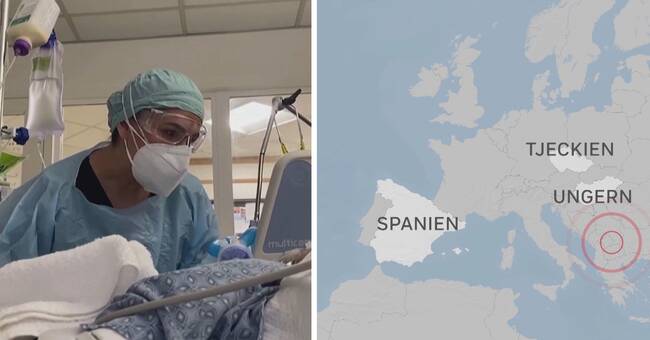More and more countries in Europe have a widespread societal spread, state epidemiologist Anders Tegnell stated during Tuesday's joint press conference.
In Spain, France and Greece, among others, the number of confirmed cases has begun to reach the same levels as in the spring.
Last week, Austria reported 850 new cases a day.
Two weeks earlier, the figure was 350.
At the same time, the registered deaths remain at a stable and low level, according to statistics from the European Infection Control Agency ECDC.
- There are no absolute answers as to why it looks like this, but we are in a different situation now and have more knowledge about how to deal with this pandemic, says Joacim Rocklöv, epidemiologist and professor at Umeå University.
Better at protecting
The fact that the countries have better systems and routines for testing is one of the possible reasons why the cases increase a lot without the death toll doing so, according to Rocklöv.
It may also be due to the fact that people have become better at protecting the risk groups so that it is above all younger and healthy people who fall ill.
- Another explanation is that viruses can become milder over time, although it usually does not go this fast.
We currently have no evidence that this would be the case, but you can keep that in mind, he says.
"Should continue like this"
Joacim Rocklöv points out that an increased spread of infection is not necessarily a bad sign.
- It may just as well mean that you are on your toes.
That you test a lot and thereby can identify and fix, he says.
Do you think Europe will be able to keep deaths down in the future?
- It has been a calmer period during the summer, which means that we can enter the autumn with better conditions.
One should be able to expect that it will continue to look this way, says Rocklöv.

